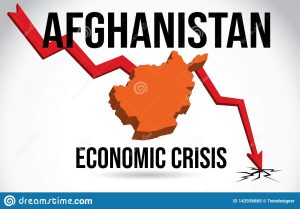
Staff Writer
The UN’s special envoy to Afghanistan, Deborah Lyons, recently warned against the continued freezing of aid and Afghanistan’s financial assets, totalling around $9 billion. The organisation cautioned that this has seen the economy shrink by over 40% in the past 2 months, with around 60% of the country’s population now requiring international aid. Trade has largely stalled, especially since banks aren’t able to operate, while civil servants and other staff, including teachers and doctors, have not been paid for months. The UN argued that the situation could change, providing the aid and assets were unfrozen. The World Bank has stated that it is considering unfreezing around $5000 million in aid to the country, however, this has not materialized as yet.
Speaking to Radio Islam International, Mohammed Sulaiman bin Shah, Afghanistan’s former deputy industry and commerce minister), and Ali Latifi, concurred with the UN’s assessment of the situation. They reiterated that trade, especially cross-border has stopped, with funding and finances being the largest problem. In addition, both Mr Shah and Mr Latifi argued that the notion that Afghans are being punished for the Taliban’s victory could not be fully escaped, with Mr Latifi going as far as as to say that the West themselves don’t even know what they want from the situation. He said, “I think part of the problem is they don’t know what they want to do, because for sure when the Taliban took over the country, there were still US troops, and the Brits and the Germans had either completely withdrawn or were still in the process of their withdrawal and the US was only days from their own withdrawal.” He added, “So, it’s not as if any of this was a surprise to them, and throughout the month of August and that 11 day period when provinces were falling, sometimes 2, 3, 4, 5 a day, these countries were still there.”
The freezing of assets and aid, Shah argued, had not only a direct impact, but also a psychological one, in relation to trading and the overall economy. Significantly, the assets belonged to Afghans themselves, regardless of the change of government. They belonged to the “Afghan people” according to Shah. Shah reiterated, “My view on the frozen assets is also even if the assets are released, it’s not going to change the economy of Afghanistan overnight. However, it will have a very strong, psychological impact on people in the private sector… and I believe that it could to a major extent catalyse the whole economic process again.”
Time was of the essence, as the refusal to adopt countervailing measures were having dire effects; Mr Shah argued that the economy doesn’t wait for the politics.
The situation has calmed down, especially from a security perspective. However, ISIS attacks have increased 7 fold since 2020 to this year. Further, many former bureaucrats have returned, despite the large brain drain, with Shah asserting that his community, and his family ethics and teachings would work with whatever, and whoever, was in charge, if it could make a difference.







0 Comments